CAMS Events
PAST EVENTS:
In-silico and Multi-omic Approaches to Predictive Toxicology
Join speakers from across academia and industry, including AZ and GSK, as we explore recent advances in predictive drug safety including the use of AI and systems modelling.
This event will be held of on afternoon of 23rd September, 1-5pm, online. Two zoom sessions and round table discussion
CAMS event on Alternative Approaches for Human-Relevant Toxicity Assessment
Date: 10th July 2024
Time: 12:30 - 19:00
Venue: The Discovery Centre (DISC) - AstraZeneca PLC, CB2 0AA
The Keynote lecture will be given by Professor Menna Clatworthy (University of Cambridge), and guest speakers from the Investigative Toxicology Leaders Forum will also be in attendance.
In this event we will showcase alternative approaches and recent advances in complex in vitro models (e.g MPS) from industry and academia to complement traditional in vivo studies, and how these are used to investigate human-relevant toxicity and translate these findings to the clinic.
With speakers from AZ, GSK, Bayer, Sanofi, Merck, Novartis and Abbvie, as well as expertise from the MRC’s Toxicology Unit and the Centre for Drug Safety Science, we will give a snapshot of where the field of medicines safety is going, and where we can learn from successes of the past to accelerate moving forward with novel therapeutic modalities.
Speakers:
Insilico Toxicology Symposium
Date: 06th November 2023
Time: 11:00-17:30
Venue: Newnham College, University of Cambridge
Cambridge Alliance on Medicine Safety: Translation of Clinical Safety
CAMS Mitochondrial Biology Toxicology Research Day
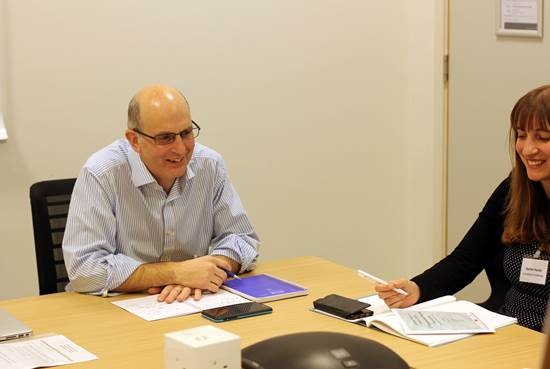
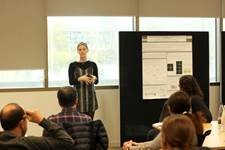

On 12th November, CAMS held the second “Mitochondrial Biology & Toxicology Research Day” at Granta Park in Cambridge. The meeting followed on from the successful Mitochondrial Toxicity workshop in 2017, with the aim of recognising key gaps in the current industrial approach to mitochondrial testing and identifying l areas for potential collaborations and funding opportunities to address these gaps.
The day was jointly organised by AstraZeneca, GlaxoSmithKline and the MRC Tox Unit, and was well attended by both academic and industrial experts in the mitochondrial biology field. Experts from across industry gave informative presentations and discussed case studies highlighting the key gaps in the current approach to mitochondrial toxicity testing. There was a great key note presentation my Margaret Ashcroft and AZ and GSK sponsored students from the MRC Tox Unit highlighted their work with posters and short pitches over lunch which set delegates’ mitochondria to work to energise scientists for the following sessions.
In the afternoon four productive work group sessions took place with the following themes;
1) Scope out potential for CAMS Mito II group to connect with existing funding and collaboration opportunities in the IMI 2 group.
2) Identify key gaps in the industry approach to mitochondrial toxicity using the case studies presented today and seek potential approaches to close them.
3) Resolve the conundrum of non-standardised mito-annotations.
These workgroup sessions saw extensive and passionate discussions between all attendees. Watch this space for the further outcomes of this meeting, hopefully more collaborations and publications to come.
If you would like to hear more about the outcomes of this meeting please contact Amy Wilson at: alw91@cam.ac.uk



Cambridge Alliance on Medicines Safety: Safety of Epigenetic Drugs Virtual Event 2021
Epigenetic modulators are attracting increasing interest as targets for pharmacotherapy across multiple therapy areas. This interactive event, hosted by the Cambridge Alliance on Medicines Safety, will focus on the safety challenges and toxicities associated with epigenetic modulation both inside and outside of an oncology setting. Representatives from AstraZeneca, GlaxoSmithKline and Novartis will provide an industry perspective of the regulatory and safety challenges currently faced when developing epigenetic dugs. Case studies will be used to highlight approaches currently taken within the pharmaceutical industry to assess the safety of epigenetic therapeutics, and the speakers will also discuss some of the fundamental challenges faced, and novel approaches to address these challenges.
Safety Challenges of Adverse Events Resulting from Drugs that Modulate the Immune System
AstraZeneca, GlaxoSmithKlein, the MRC Toxicology Unit and the University of Cambridge came together on Tuesday 23rd July 2019 to host a one day symposium at Homerton College, Cambridge. Organised by Catherine Betts from AstraZeneca, the symposium investigated the safety challenges of adverse events resulting from drugs that modulate the immune system. Stefan Platz, head of clinical pharmacology and safety sciences at AstraZeneca opened the morning session, followed by four excellent speakers presenting on a range of topics such as innate immunity, drug hypersensitivity and humanised mouse models.
Three workshops were held in the afternoon to facilitate collaborative discussion on important immunotoxicity questions, an area of huge complexity. For example, how can we predict immune related adverse events in the early stages of drug discovery? Can we use humanised mouse models for the assessment of safety and efficacy of immunotherapies?
This CAMS sponsored symposium was a huge success, with applications for PhD studentships submitted as a result of interactions and discussions held on the day.
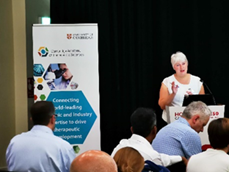
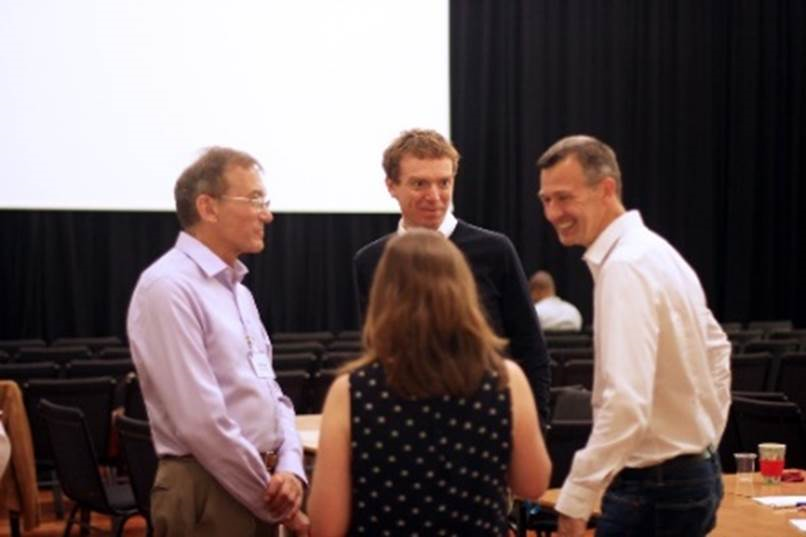
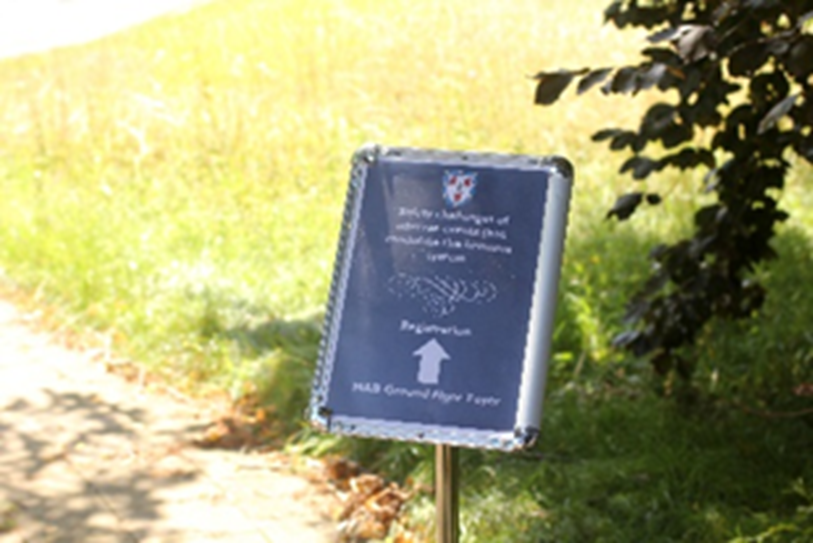
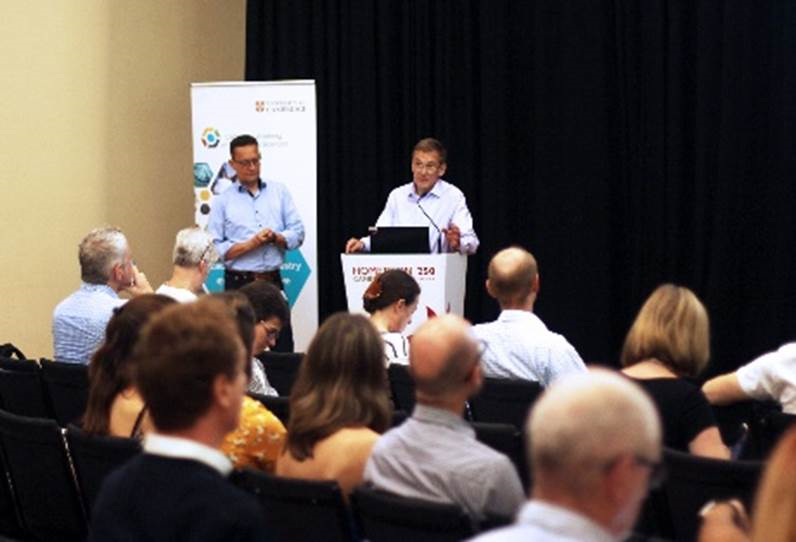
In-Silico Toxicology Network Meeting 2019
The Cambridge Alliance for Medicines Safety was delighted to support the inaugural In Silico Toxicology Network Meeting, along with the British Toxicology Society (BTS), the Royal Society of Chemistry (RSC) CICAG Group, and Lhasa Ltd. This event was spearheaded by CAMS committee member Andreas Bender from the Department of Chemistry at the University, and was designed to foster the in silico toxicology community in the UK and beyond. 90 people were registered for the event, and the programme provided a mix of scientific contributions as well as presentations covering regulatory aspects, industry perspectives, databases, relevant software, journals and ongoing work in the field.
Presenters were encouraged to discuss in silico toxicology approaches that are currently in use, as well as to identify aspects that don't work that well right now to identify potential for future developments and the event concluded with reception and a dinner to stimulate further discussions between participants. It will be held yearly from now on to bring people together at regular intervals, and the next meeting is currently scheduled for 30 September 2020. You are welcome to send an email to Andreas at ab454@cam.ac.uk if you wish to present in 2020, or to receive an update once details are known (which will also be published on the event website, at http://www.drugdiscovery.net/tox in the near future).
